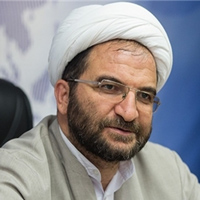A Comparative Study of the "Methodological Foundations" of Monotheism and Polytheism in the Theological Views of Maturidiyyah and Deobandiyyah
Author(s):
Article Type:
Research/Original Article (دارای رتبه معتبر)
Abstract:
Deobandiyyah is a school that originated from the theological denomination of Maturidiyyah about two centuries ago. The claim of following Maturidi theology is the most important theological feature of Deobandiyyah. However, comparing theological opinions shows that Deobandiyyah took a different view on the issues of monotheism and polytheism. Some of these discrepancies go back to the different methodological foundations of the Deobandis. In response to the question of the extent of Deobandi's evolution, considered in the subject of research, it is concluded that Deobandis are more inclined to the narrative method and emphasize on such issues as prioritizing narrations over reason, delegating the meaning of God's narrative attributes to Him (instead of interpreting them as the Maturidis do) and the certainty of texts (in contrast to the skepticism of texts in Maturidiyyah's view). Some other theological views, for example the emphasis on exaltation in understanding the attributes of God, the negation of tashbih (anthropomorphism) and tatil (divesting God of His attributes) are quite similar between the Maturidis and the Deobandis in terms of methodological principles. The only difference is that the mentioned issues are summarized in Maturidiyyah and elaborated in Deobandiyyah.
Keywords:
Language:
Persian
Published:
Pajouheshname - ye - Mazaheb - e - Eslami, Volume:8 Issue: 15, 2021
Pages:
7 to 28
https://www.magiran.com/p2329614
سامانه نویسندگان
مقالات دیگری از این نویسنده (گان)
-
A Typology of Traditional Islam in terms of Constant and Variable Elements of Religion
Seyed Ali Bathaei *, Mehdi Farmanian, Ebrahim Qasemi
Pajouheshname - ye - Mazaheb - e - Eslami, -
A critical rereading of Tabatabai's Madrasi point of view regarding the place of debate in the first centuries of Imamia
Mogtba Moradimaki *, Safdar Rajabzadeh, Mehdi Farmanian
Journal of Kalam Pajouhi,



